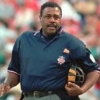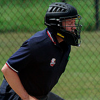How Would You Handle This?
Umpire-Empire locks topics which have not been active in the last year. The thread you are viewing hasn't been active in 1922 days so you will not be able to post. We do recommend you starting a new topic to find out what's new in the world of umpiring.
-
Similar Content
-
- 2 answers
- 773 views
-
- 6 answers
- 1,668 views
-
- 5 replies
- 2,111 views
-
- 44 replies
- 5,002 views
-
Obstruction / Interference with Protected /Unprotected Fielder
By jms1425,
- protected fielder
- batter-runner
- (and 2 more)
- 7 replies
- 2,585 views
-



Recommended Posts